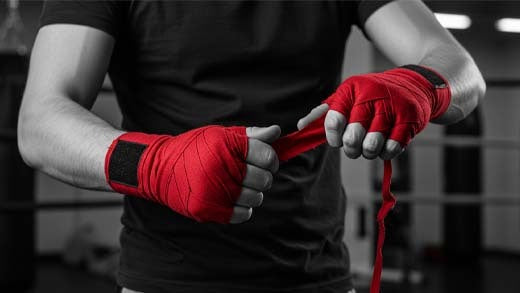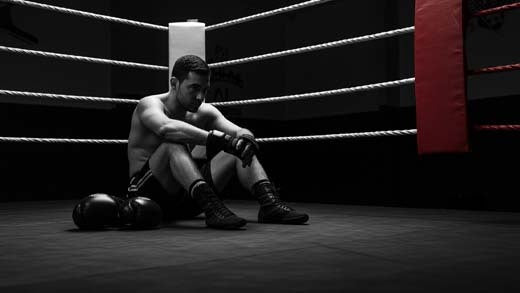
Over 60% of our bodies consist of water, yet dehydration can sneak up faster than most athletes realize. In boxing, where endurance, reaction time, and recovery define outcomes, hydration isn’t just about quenching thirst; it’s about performance and protection. Studies demonstrate that losing even two percent can significantly decrease endurance/focus levels, which will cost them significantly in both training sessions and competitions.
So, how much water should a boxer drink to stay in peak condition? That answer depends on training intensity, body weight, and fight preparation, but the fundamentals remain consistent across amateur and professional boxers alike. Proper hydration is both strategic and essential.
Why Hydration Matters for Boxers
Water balances body temperature, contributes to the transportation of nutrients, and cushions joints. When training intensely in boxing, athletes can lose 1.5 litres of water in sweat per hour. Dehydration not only slows down reflexes but also increases the risk of cramps and injuries in the muscles.
In the case of boxers, who regularly go through rigorous high-intensity training sessions, hydration loss equates to loss of efficiency. The balance in the water levels leads to quick reaction, clarity of decisions, and the endurance to run with power in the later rounds.
How Much Water Should a Boxer Drink Daily?
The usual limit is approximately 3-4 litres a day in men and 2-3 litres in women, whereas boxing requires much more than that. The body weight, training intensity, and climate are some of the factors.
-
Light exercise days: 2 to 3 litres could be sufficient.
-
Moderate to severe training: 3-5 litres all day long.
-
Professional fighters in camp: 5-6 litres closer with an electrolyte balance being prioritized.
This is the common mistake of many boxers as they attempt to drink a lot at once in order to close the gap. The smarter thing is to maintain constant hydration during the day, especially pre-training, during, and after.
The Half-Body-Weight Rule: Useful or Misleading?
Have you heard, "Drink half your body weight in ounces each day." For an average 160-pound boxer, that means about 80 ounces or 2.3 litres.
Boxing is not your average activity; sparring, conditioning drills, and long sessions on the pads require increased hydration needs that go far beyond this formula. Take this advice as a starting point, not as the only solution.
How Much Water Should a Professional Boxer Drink?
Professional fighters, especially those in training camps, follow stricter hydration routines. They may consume 5 litres or more per day, adjusting for body composition and sweat rate.
What separates professionals is how they pair water intake with electrolytes. Sodium, potassium, and magnesium prevent hyponatremia (water intoxication) and maintain muscle function during prolonged training. Many fighters rely on electrolyte powders or sports drinks alongside water to stay balanced.
Hydration is also carefully managed during weight cuts. A misstep here can drain energy reserves and even compromise safety in the ring. That’s why pro boxers often work with nutritionists to fine-tune hydration alongside diet.
Hydration Before, During, and After Training
-
Before training: 500–600 ml two hours before stepping into the gym.
-
During training: 150–250 ml every 15–20 minutes.
-
After training: At least 500 ml immediately, followed by steady sipping for the next few hours.
A simple check is urine colour, pale yellow usually means you’re hydrated, while darker shades signal dehydration.
Beyond Water: Supporting Hydration with Training
Hydration is only one part of performance preparation. Boxers who build stronger wrists and forearms often notice they can sustain punching power longer without fatigue. Simple strength-focused routines complement hydration strategies, helping fighters perform at their peak across full sessions.
Equipment That Supports Hydration
The right protective gear does more than guard against injury; it also helps regulate temperature. Breathable gloves, headgear, and apparel can reduce overheating, lowering sweat loss and making hydration easier to manage. For many boxers, upgrading to gear that prevents excess heat buildup is just as important as how much water they drink.
Practical Tips for Staying Hydrated
-
Carry a reusable water bottle during training and sparring.
-
Add natural electrolytes through coconut water or fruit-infused drinks.
-
Avoid relying solely on coffee or energy drinks; they dehydrate more than they help.
-
Rehydrate after weigh-ins gradually to avoid bloating or sluggishness.
These small adjustments create habits that keep hydration consistent rather than reactive.
How Sting Sport Supports Boxers
At Sting Sport, we realize that among the pillars of boxing performance, hydration is one of them. Not only do we design protective gear that makes a boxer feel more comfortable, but we also support each step of their career with training resources designed to help them train smarter, not harder.
Every boxer will be able to enter the ring confidently with the assistance of the appropriate hydration plan, which should be reinforced by the proper training and equipment.
Conclusion
So, how much water should a boxer drink? It all depends on the intensity of training, body weight, and whether you are a professional or a beginner. The base of 3-5 litres per day, plus electrolytes added when the session is longer, maintains performance and recovery (base) efficiently.
Be regular, keep track of your hydration, and complement it with smarter training and gear decisions. With guidance from Sting Sport, you’ll be better prepared for every round, hydrated, focused, and ready to perform.
FAQs
1. Is it possible to drink too much water as a boxer?
Yes. Excessive water loss may dilute salts and lead to weakness. Hydrate with the electrolytes, particularly when you have long sessions.
2. Is it okay to drink water when sparring?
Definitely, taking small sips in between rounds avoids dehydration and, therefore, one remains focused without getting bloated.
3. Which is better: water or a sports drink for boxers?
Light sessions do not need too much water. To replace lost minerals in the sweat, add electrolytes or a diluted sports drink during long, high-intensity training.



